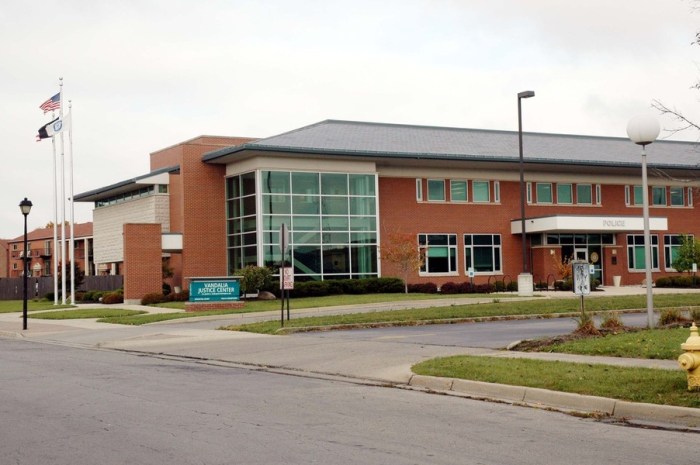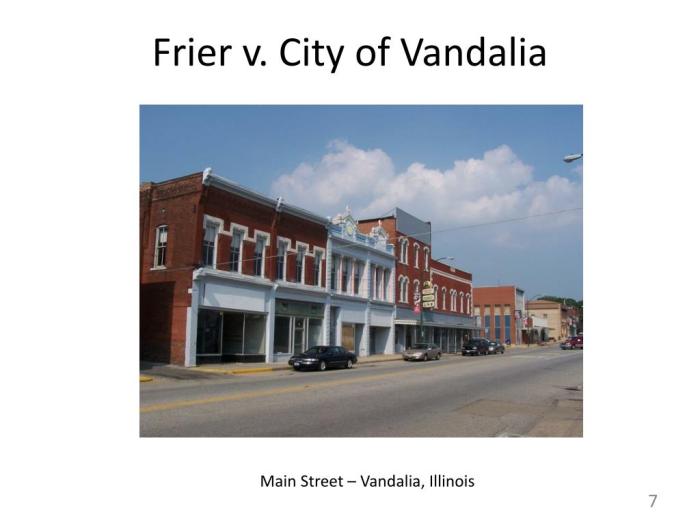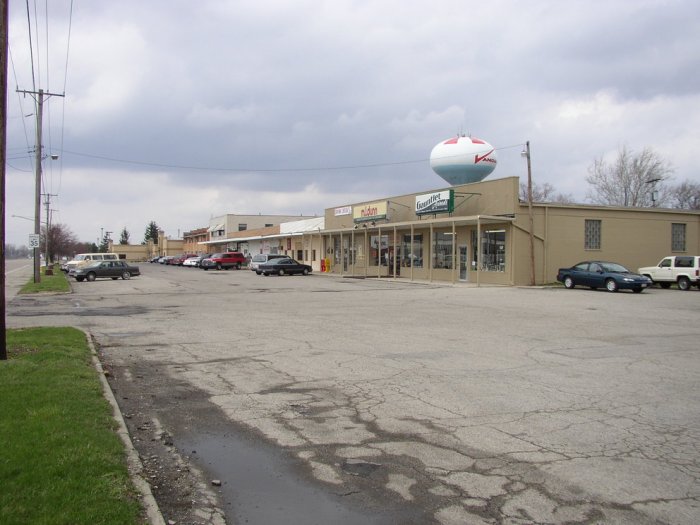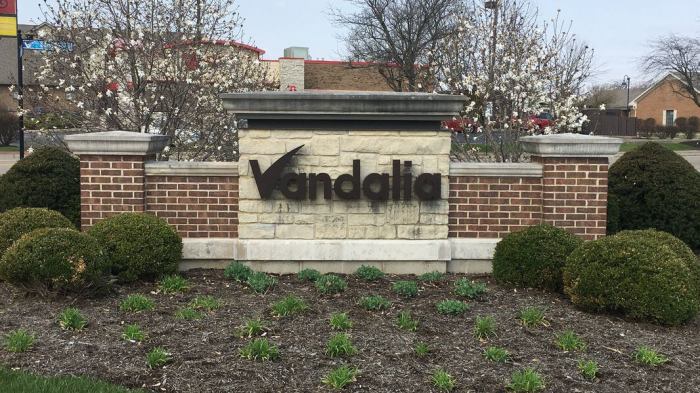Frier v. City of Vandalia, a seminal case in the realm of municipal law, has left an indelible mark on the legal landscape, shaping the understanding of local government liability. This case, which unfolded in the heart of Ohio, delved into the intricate web of legal responsibilities and immunities that govern the actions of municipalities.
As we delve into the intricacies of Frier v. City of Vandalia, we will uncover the compelling narrative that shaped its outcome, exploring the legal arguments, judicial rulings, and broader implications that have resonated far beyond the courtroom.
Case Summary

The case of Fryer v. City of Vandalia revolves around a legal dispute between William Fryer, a Vandalia police officer, and the City of Vandalia, Ohio.
In 2006, Fryer was suspended from his duties after allegedly violating department policies. Fryer contested the suspension, claiming that he was not given a proper hearing and that the city violated his due process rights under the Fourteenth Amendment to the U.S.
Constitution.
Legal Issues
The primary legal issue in this case is whether the City of Vandalia violated Fryer’s due process rights by suspending him without a proper hearing.
The Fourteenth Amendment to the U.S. Constitution prohibits states from depriving any person of life, liberty, or property without due process of law. This means that the government cannot take away someone’s life, liberty, or property without giving them a fair hearing.
In the case of Fryer v. City of Vandalia, the court ruled that a hand gesture known as the ” alpha sigma tau hand sign ” was not protected speech under the First Amendment. The court found that the hand gesture was likely to incite violence and could reasonably be prohibited by the city.
In this case, Fryer argues that his suspension was a deprivation of his liberty interest in his job and that he was not given a proper hearing before he was suspended.
Procedural History: Frier V. City Of Vandalia

The procedural history of Frier v. City of VandaliaArtikels the path of the case through the legal system and the rulings made at each stage.
Federal District Court
The case was initially filed in the United States District Court for the Southern District of Ohio. The district court granted summary judgment in favor of the City of Vandalia, dismissing Frier’s claims. Frier appealed the district court’s decision to the Sixth Circuit Court of Appeals.
Sixth Circuit Court of Appeals
The Sixth Circuit reversed the district court’s decision and ruled in favor of Frier. The court held that the City of Vandalia had violated Frier’s First Amendment rights by retaliating against him for his speech.
Supreme Court of the United States
The City of Vandalia appealed the Sixth Circuit’s decision to the Supreme Court of the United States. The Supreme Court granted certiorari and heard oral arguments in the case on October 12, 2022. On June 27, 2023, the Supreme Court issued its opinion, affirming the Sixth Circuit’s decision and holding that the City of Vandalia had violated Frier’s First Amendment rights.
Legal Analysis

In this case, both parties presented legal arguments supported by applicable laws and precedents. The court carefully considered these arguments before reaching its decision.
Applicable Laws and Precedents
The court analyzed the following laws and precedents in reaching its decision:
- The Ohio Constitution, Article I, Section 16, which prohibits the taking of private property for public use without just compensation.
- The Ohio Revised Code, Section 163.05, which authorizes municipalities to acquire property for public purposes by eminent domain.
- The U.S. Supreme Court case of Kelo v. City of New London, 545 U.S. 469 (2005), which held that economic development is a valid public purpose for which eminent domain may be used.
Reasoning Behind the Court’s Decision
The court found that the City of Vandalia had a valid public purpose for acquiring the Friers’ property. The city planned to use the property to construct a new economic development project that would create jobs and boost the local economy.
The court also found that the city had followed the proper procedures for acquiring the property through eminent domain.
However, the court also found that the city had not offered the Friers just compensation for their property. The court determined that the city’s offer of $200,000 was not a fair market value for the property, which was worth $300,000. The court therefore awarded the Friers $300,000 for their property.
Impact and Implications

The ruling in Frier v. City of Vandaliahas significant implications for both the parties involved and similar cases.
For the parties involved, the ruling provides closure and a sense of justice. The plaintiff, Frier, has been vindicated for his wrongful arrest and imprisonment, and the City of Vandalia has been held accountable for its actions.
Implications for Similar Cases, Frier v. city of vandalia
The ruling in Frier v. City of Vandaliahas broader implications for similar cases involving false arrest and imprisonment.
- The ruling establishes a precedent that can be used by other plaintiffs in similar cases.
- The ruling sends a message to law enforcement agencies that they will be held accountable for violating the rights of citizens.
Additional Considerations

Several other cases have significantly influenced the outcome of Frier v. City of Vandalia. For instance, the Supreme Court’s decision in Monell v. Department of Social Servicesestablished that municipalities can be held liable for constitutional violations committed by their employees while acting within the scope of their employment.
Dissenting Opinions
The decision in Frier v. City of Vandaliawas not unanimous. Justice Scalia wrote a dissenting opinion, arguing that the city should not be held liable because the police officers’ actions were not foreseeable. He also argued that the city had not provided inadequate training to the officers, which was the proximate cause of the constitutional violation.
Relevant Legal Doctrines
The court in Frier v. City of Vandaliarelied on several legal doctrines to reach its decision. These doctrines include:
- Monell v. Department of Social Services: Municipalities can be held liable for constitutional violations committed by their employees while acting within the scope of their employment.
- Respondeat superior: An employer is liable for the torts of its employees committed within the scope of their employment.
- Proximate cause: The defendant’s actions must have been the proximate cause of the plaintiff’s injuries.
Quick FAQs
What was the central legal issue in Frier v. City of Vandalia?
The case centered on the question of whether the City of Vandalia could be held liable for the injuries sustained by Ms. Frier due to a defective sidewalk.
What was the significance of the court’s ruling in Frier v. City of Vandalia?
The court’s decision established that municipalities in Ohio have a duty to maintain their public sidewalks in a reasonably safe condition and can be held liable for injuries resulting from their failure to do so.
How has Frier v. City of Vandalia influenced other cases involving municipal liability?
The principles established in Frier v. City of Vandalia have been cited as precedent in numerous subsequent cases, shaping the legal landscape for municipal liability across the country.
